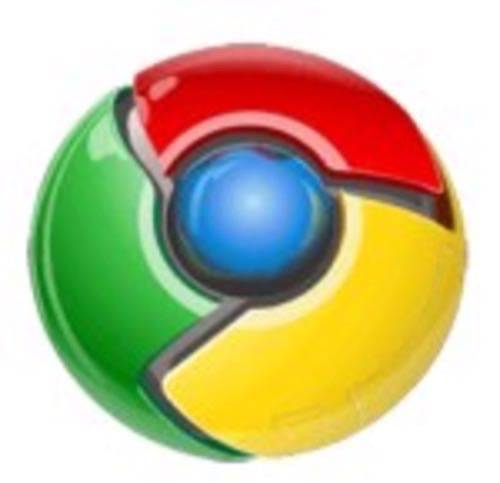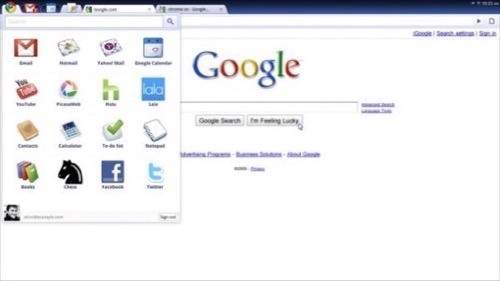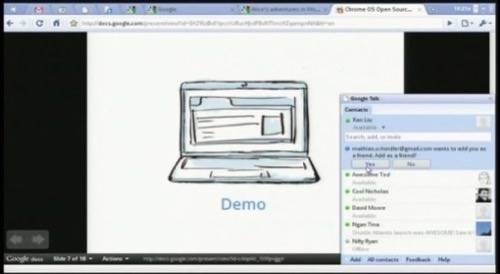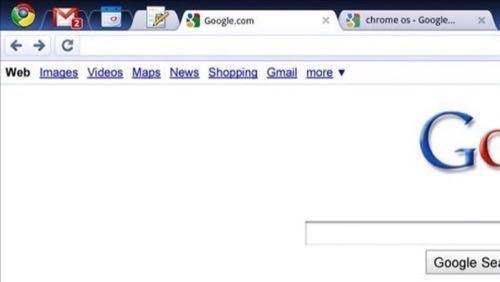It’s the morning after the big Chrome OS event where Google executives and engineers revealed a myriad of details about the company’s first attempt at creating their own operating system. The highly anticipated news conference was tracked all over the web, liveblogged by technology sites, and Twittered so much that it’s still listed as a “trending topic” as of this morning.

But now that the news is out, has Chrome OS lost its shine? People had high expectations for Google’s new operating system but the end result doesn’t look like the revolutionary, “change the world” product many had hoped for.
Yes, Chrome OS is Different
Don’t get us wrong – Google’s OS is different than whatever Windows, Mac, or Linux build you have running on your computer today. The new OS does away with desktop applications entirely – everything you use on Google Chrome OS runs on the web. Of course, the company hopes you’ll use a lot of Google products like Gmail and YouTube, but it doesn’t limit you to just Google-branded services. In the built-in applications area, there are also links to other web apps like the online TV streaming service Hulu.com and music sites Lala and Pandora. To be fair, Chrome OS even links to Yahoo and Microsoft’s webmail offerings right out of the box.

Google’s major goal with Chrome OS is to moving computing off our personal hard drives and into the cloud…the Google cloud. To accomplish such a feat, they’ve made the web browser the OS. Everything you need (in theory) is accessible through the included Google Chrome browser, the same browser the company currently offers to Windows users with Mac and Linux versions expected by the end of this year.
As exciting as that vision is, we have to wonder if people – especially the mainstream netbook users the OS is aimed at – are ready for this big of a switch. And more importantly, is the technology itself ready to make the change a comfortable and seamless experience?
…but is it Better?
After digesting yesterday’s news, some lingering questions remain. Was this the OS everyone was hoping for or has Google let us down?
You Can’t Just Install Chrome OS – You Have to Buy a New Netbook
To begin with, one of the more surprising reveals that came out of yesterday’s news is that the OS cannot be installed on your own computer. Oh sure, there are downloadsavailable that use Google’s open-sourced code to create bootable builds tech-savvy users and developers can play with, but the official word from the search giant is that anyone wanting to use the “real” Google Chrome OS will have to purchase a new netbook to do so. You cannot simply download it from the web and install it on any machine.
Part of the reason for this restriction is driver support. Google is working with carefully selected manufacturers to offer a handful of netbooks running the OS in the coming year. By going this route, they don’t have to provide an entire ecosystem of drivers for every piece of hardware out there – they can pick and choose which ones to support. They’ll likely limit the number of peripherals supported, too. According to what was said yesterday, the company will support “mass storage devices” (think USB flash drives and digital cameras) but were cagey on how they plan on offering printing support. All they would say is that they’re planning on an “innovative approach” when it comes to printing, whatever that means. Hopefully, they’re planning to do something more than just integrating with Kinko’s and FedEx’s online document services, for example. Printing, (sorry Google) is not a web app just yet.
No Other Web Browsers Supported
Another big disappointment is the company’s decision to limit all web surfing to the one included browser, Google Chrome. Firefox and Safari users are out of luck – no other browsers will be supported. But before you cry out “antitrust!,” be warned – Google has this covered. The code base used to build the OS is open-source – that means anyone take the code and create their own version of Chrome OS. As was carefully – and haltingly – explained by Google’s VP of Product Management, Sundar Pichai, other browser makers can take the code and build their own OS if they want to. But let’s get real – Firefox Chrome OS? We don’t think so. The reality is that fans of other browsers are simply out of luck if they want to use this operating system.
Offline Access is Limited. Your New Netbook is Now a Brick.
One of the questions that got glossed over during the Q&A session at the end of the event is how Google’s OS plans to deal with offline access. The world is not blanketed in Wi-Fi yet, so what can this web-based OS do without the web? Surprisingly, the answer given didn’t refer to any subsidized deals with cellular providers regarding deals to offer built-in 3G connectivity for the new netbooks. Instead, Pichai explained that the OS was built for use with Wi-Fi.

Of course, a handful of Google products use Google Gears, a technology that makes websites available offline. For example, Gmail uses Gears to create an offline version of your webmail inbox which you can use to read and respond to email until internet connectivity becomes available again. At that point, all the changes are synced back to Google’s servers. Although Google didn’t specifically refer to Gears when answering the question, there’s no reason to doubt that it will work in Chrome OS’s web browser the same as it does now in the standard Chrome browser.
However, Pichai did make note of Chrome OS’s support for HTML5, an upcoming revision to the core markup language used to build the web. In the new specification, a key feature is offline support for web apps. However, web application developers will have to rebuild their apps in order to use HTML5, so users will be dependent on each individual company to make this change. While it’s believed that one day this spec could make the whole web an offline app, the reality is that most developers have yet to implement this technology in their services yet. Even by Chrome OS’s launch next year, there’s no reason to believe the landscape will have changed significantly by then.
Do You Really Need an OS or Just the Chrome Web Browser?
Finally, the big question regarding Chrome OS is why? What can the OS do that any operating system running the Chrome browser cannot? Based on what was shown yesterday, the answer is very little. Chrome OS’s brand-new features consist of two things: application tabs and panels. The panels are persistent windows that pop-up in front of your web browser’s main window. For example, Google Chat, the company’s IM service, can live in a panel that stays on top no matter what window you’re viewing.

Application tabs, meanwhile, are special tabs that give you easy access to your most frequently used web apps from the browser. Any page tab can be made into an application tab with one click and the resulting “tab” is represented with the colorful icon for that site or service. While that’s certainly a cool feature, it alone isn’t a major selling point for the OS. That would be like saying you have to buy Mac OS X because of the dock or Windows because of the taskbar. You need a million of these little features combined to add up to a compelling reason to buy an OS.

That’s not to say that Chrome OS itself doesn’t have worthwhile features of its own – like its built-in security mechanisms or its auto-update system, it’s just that these aren’t the kinds of things that sell it to an end user. The questions consumers want answers to are what does it do that’s special? What does it look like? And for now, the answer is “it’s basically just a web browser.”
Revolution? Maybe Not Just Yet.
At the end of the day, Chrome OS is an exciting, but not fully realized, vision. Although it has potential, the world may not be ready for a web-based netbook right now. Also, the technology needed to make the Wi-Fi only netbook useful without an internet connection isn’t up to full speed either. At the end of the day, the netbook will be marginally more useful than an iPod Touch – when connected, it’s amazing. Offline, not so much.
While you might not rush right out to buy a Chrome OS netbook when they first launch, there could come a time – sooner than you think – when it becomes a reasonable choice. When the majority of apps work offline and you’ve fully transitioned away from desktop apps, a web-connected netbook, especially one that’s affordable, could easily become your everyday computer. That day hasn’t arrived yet. For now, Chrome OS is an exciting glimpse at the future of computing, but not a practical device for the majority of users.
Disclosure: Sarah Perez freelances for Microsoft’s Channel 10 blog, but is not a Microsoft employee. Her primary web browser is, in fact, Google Chrome which she uses exclusively.





















